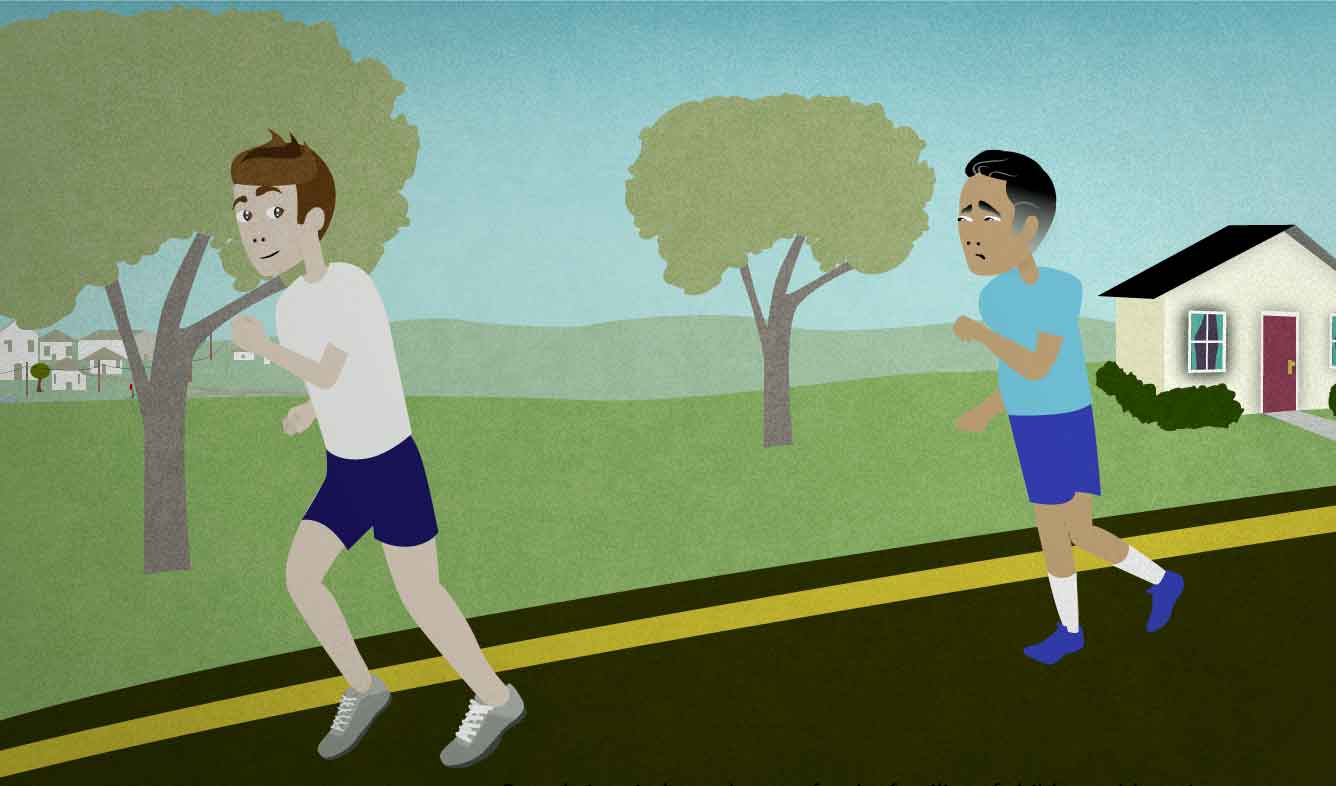“I don't think I can keep up this pace.”
You're going for a run with a friend of yours who's a strong runner. He's running too fast, and you don't think you'll be able to continue running that fast for the entire time. You say this, hoping he will slow down.
I don't think I can keep up this pace.
Want Video and Sound? Follow us on YouTube

I don't think (sentence)
In this example:
I don't think I'll be able to make it.
Notice that the speaker says "I don't think I'll be able to" instead of "I think I wonn't be able to". In English, it's better to make "do" negative and keep the modal ("can", "will", "should", etc.) positive:
I don't think I should leave him here by himself.
I don't think I've been there.
I don't think she wants to go.
(someone) can (do something)
You can use "can" or "can't" to talk about the future as well as the present. In the example above, the speaker is saying that he won't be able to keep running this fast in the future. But he still uses "can".
keep up a pace
A "pace" is a speed that you choose for yourself. When you're running, swimming, bicycling, etc. you choose a "pace" that's fast, but not so fast that you'll get tired out and not able to continue. To "keep up" a pace means to continue going at the same speed:
If she can keep up that pace, she might even break the world record.
You can also use "pace" and "keep up the pace" to talk about work. When you're busy at work, you can say:
I've got so much going on right now. I don't know how I'm going to keep up this pace.
